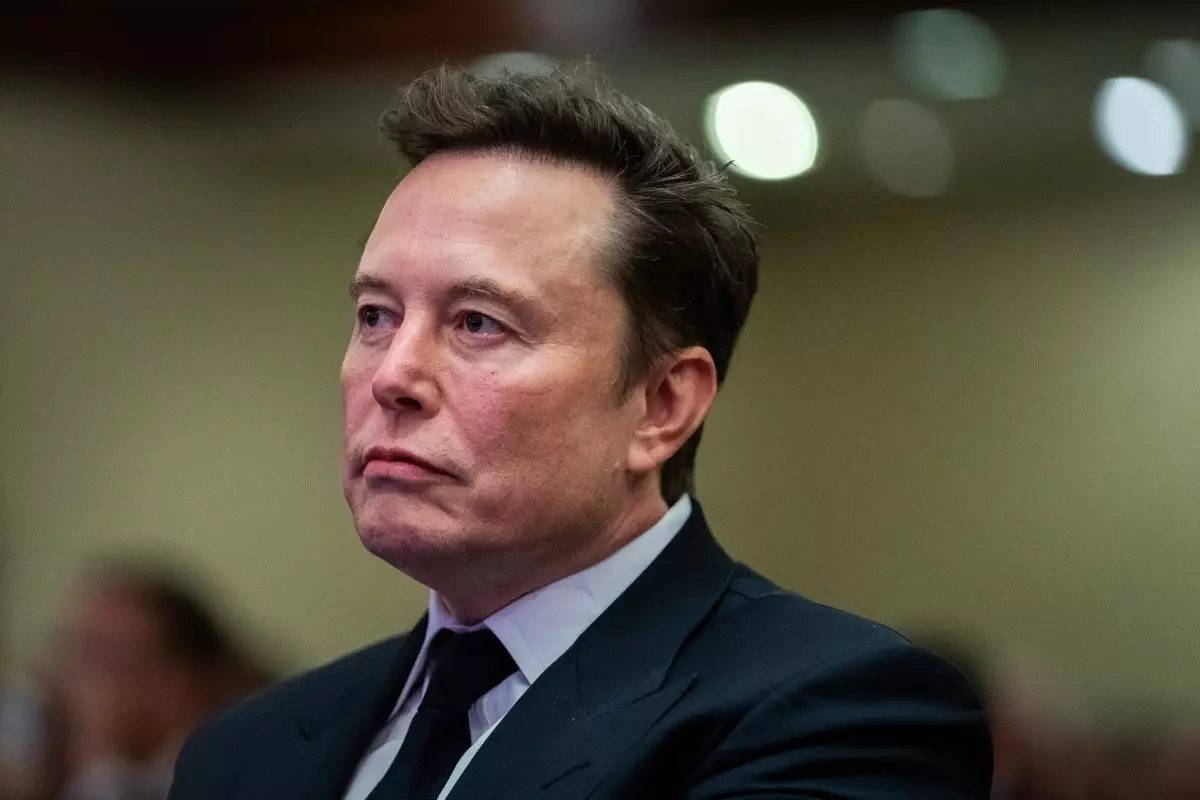The intersection of technology, commerce, and ethics often leads to heated disputes, especially in vibrant industries like artificial intelligence (AI). Recently, a legal battle has ensued involving tech mogul Elon Musk and OpenAI, raising pivotal questions not just about competition in the AI space, but about the ethical implications surrounding its profit-driven trajectory. Musk’s legal team has initiated a preliminary injunction against OpenAI, its co-founders, and Microsoft—invoking serious accusations of anticompetitive practices that could have catastrophic ramifications for competitors in the field.
Musk’s attorneys assert that OpenAI, along with key individuals including CEO Sam Altman and various Microsoft executives, has engaged in practices aimed at suppressing competition. Specifically, the claims involve discouraging investments in competing firms such as Musk’s own AI venture, xAI. This raises ethical questions surrounding the influence that established players, like OpenAI and Microsoft, can exert in the burgeoning AI landscape. Furthermore, Musk’s team argues that OpenAI has unlawfully obtained sensitive information, allegedly through its affiliations with Microsoft, which undermines the foundational principles of a competitive marketplace.
The motion for injunction articulates that the transformation of OpenAI from its original nonprofit mission to a for-profit enterprise violates the trust and expectations of both its early supporters and the general public. It pushes for a judicial intervention to preserve what is characterized as OpenAI’s philanthropic intent—a stance that emphasizes the fine line between innovation and monopolistic behavior in tech.
Musk’s concerns regarding OpenAI seem deeply personal and protracted, likely stemming from his exit from the organization in 2018 due to disagreements over its strategic direction. The tensions continued to escalate, leading Musk originally to file a lawsuit against OpenAI that was briefly withdrawn before being revived with new allegations and additional defendants. This legal push seems indicative of Musk’s growing frustrations over what he perceives as a betrayal of OpenAI’s altruistic origins.
At the heart of Musk’s allegations lies a more profound anxiety about the future of AI development. The charge that OpenAI and Microsoft are engaging in self-interested practices—such as choosing a payment processor in which Altman has vested interests—paints a picture of a tech landscape where personal financial enrichment may impede organizational integrity. Musk’s legal team claims that if immediate action is not taken to halt these questionable activities, irreversible damage could ensue, eventually jeopardizing the public trust in not only OpenAI but also in the broader AI ecosystem.
A crucial element of the dispute revolves around the competition for funding, especially in light of a recent report indicating that OpenAI has discouraged investors from supporting Musk’s xAI, effectively stifling its ability to raise capital. While Musk’s xAI claims substantial financial backing and the launch of innovative products like Grok, this ongoing battle for resources raises critical questions about the availability of capital in the AI sector. If the largest players in the industry leverage their power to limit funding opportunities for competitors, this could hinder innovation and diversity—all essential for healthy competition.
Furthermore, Musk’s mention of an investor that retracted support for xAI due to OpenAI’s pressures exemplifies the precarious dynamics of venture capital within this rapidly evolving domain. The future of technological advancement may heavily depend on how these disputes are resolved, as a monopolistic grip could stifle the ingenuity that the AI field so desperately needs.
Ultimately, Musk’s call for a preliminary injunction not only sets the stage for a potentially complicated courtroom showdown but also underscores essential ethical dilemmas present in today’s tech landscape. As AI technologies continue to unveil unprecedented capabilities, the question emerges: can goodwill coexist with profit-driven motives? Musk’s attorneys emphasize the necessity of upholding OpenAI’s original mission, highlighting the fear that commercial interests could overwhelmingly overshadow the humanitarian aspects that initially defined the organization.
As both sides prepare for what promises to be a contentious legal battle, the outcome could precipitate broader implications for the AI industry, potentially offering insights into the relationship between innovation, ethics, and the responsibilities of tech creators toward society. There’s no doubt that the evolving landscape of AI will continue to be scrutinized in light of these developments, with the public eye firmly fixed on the court’s decision. In the end, whether Musk’s vision of a principled AI future holds any weight against the gravitational pull of corporate ambition remains to be seen.

